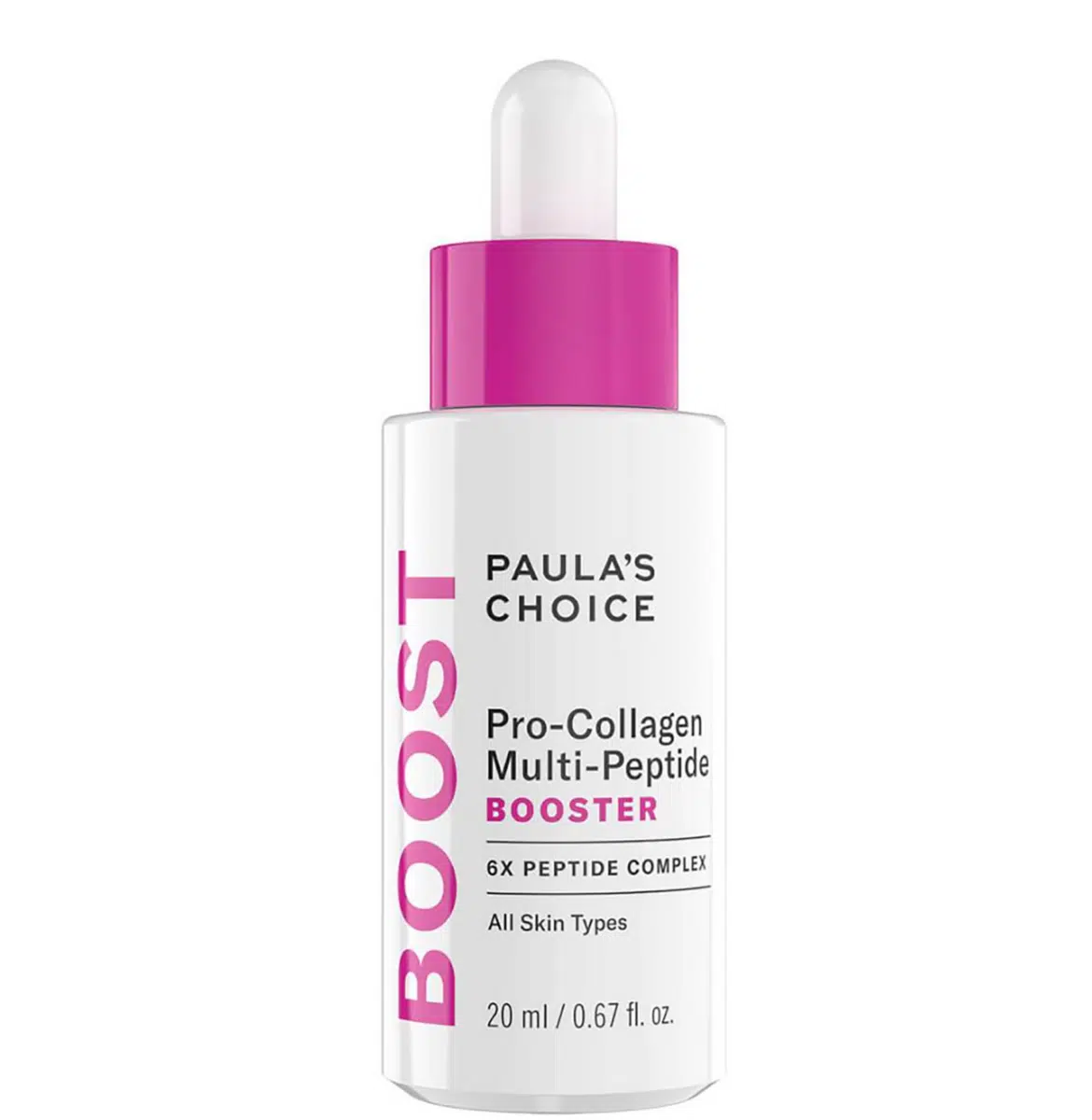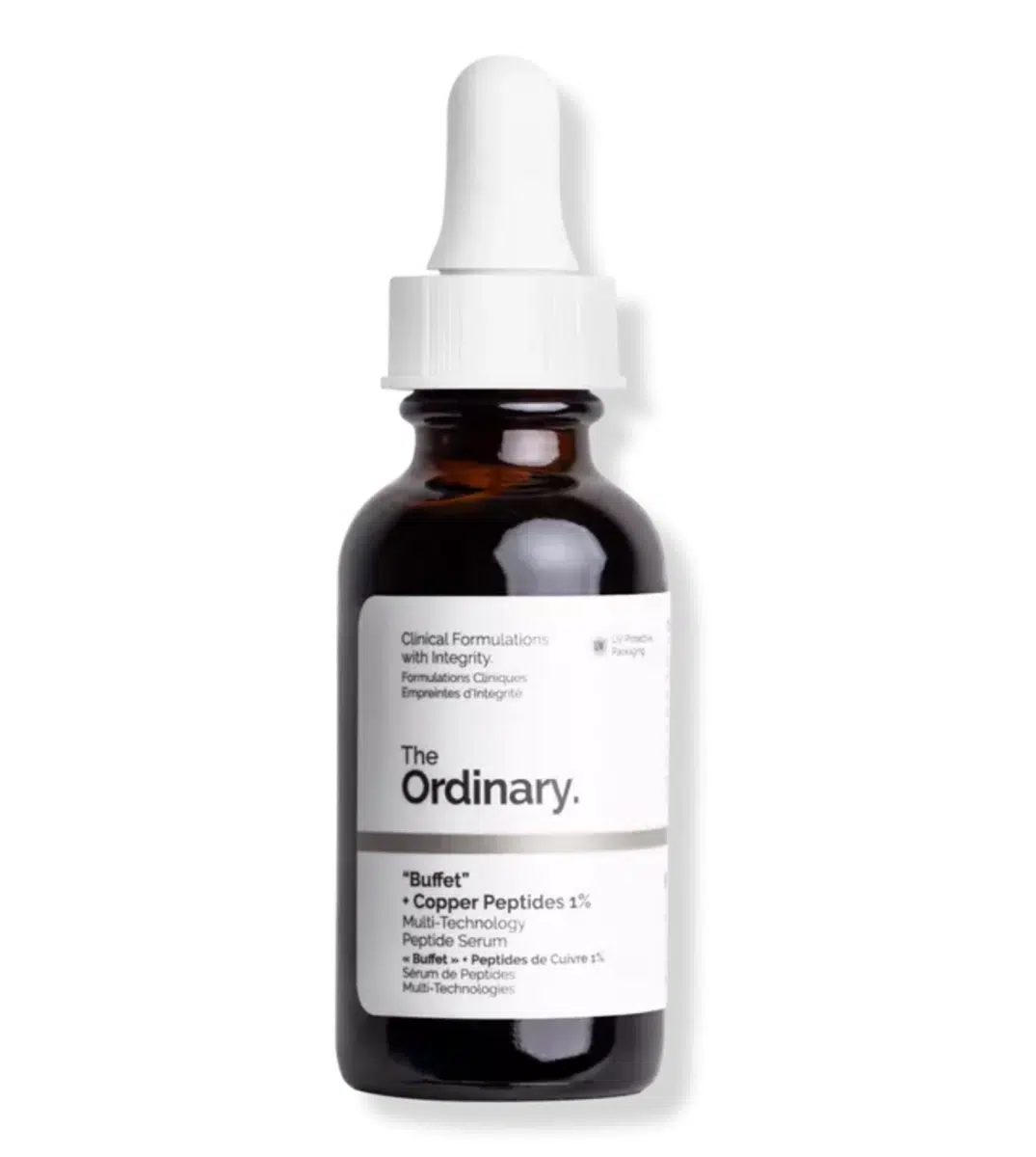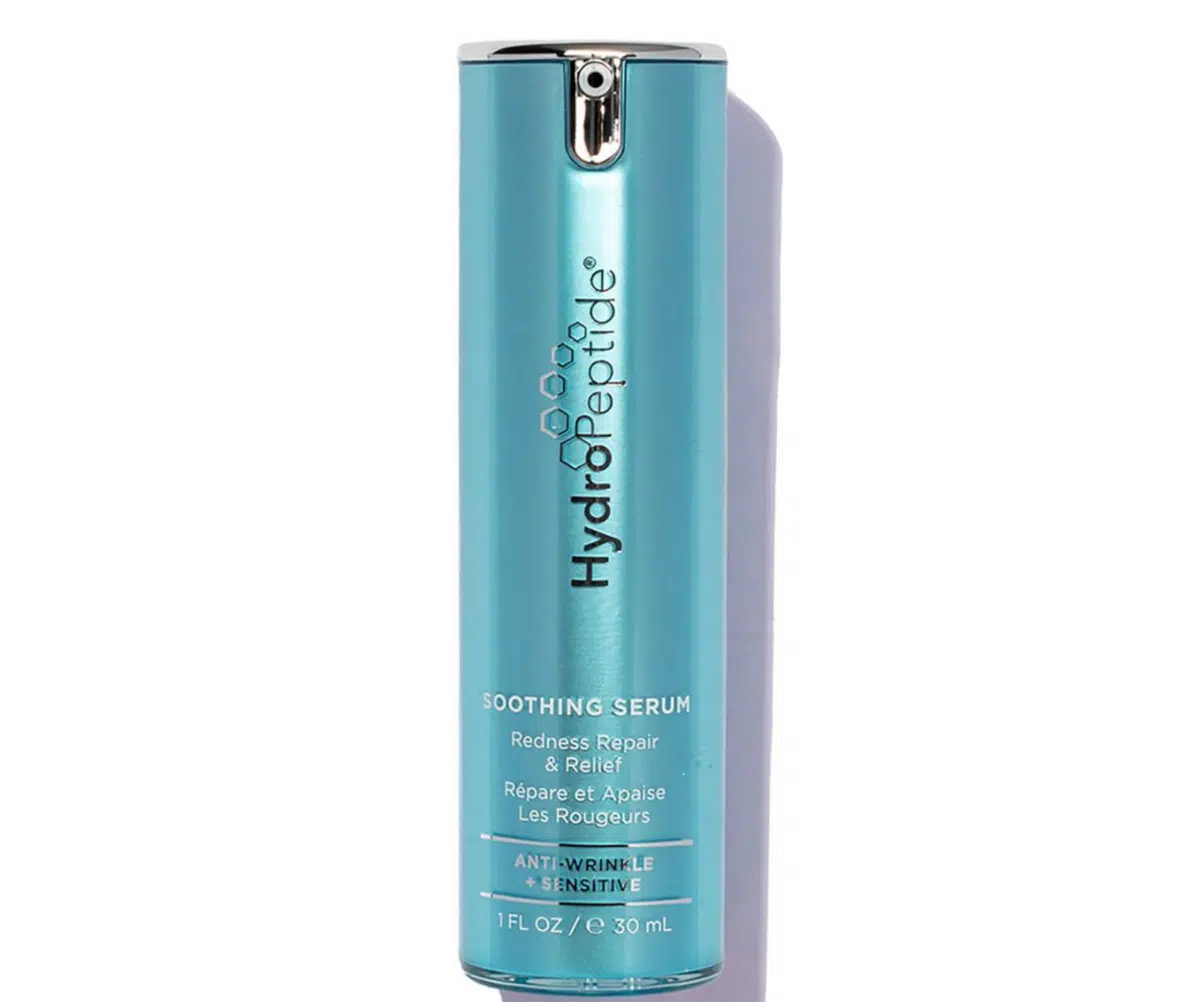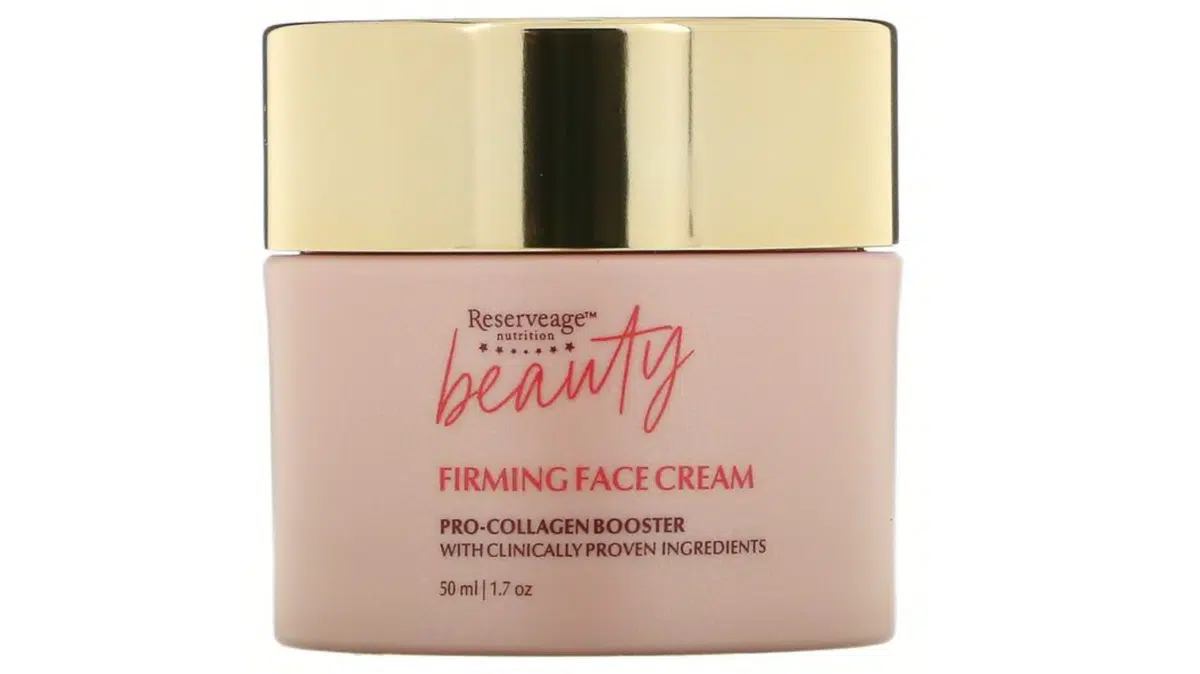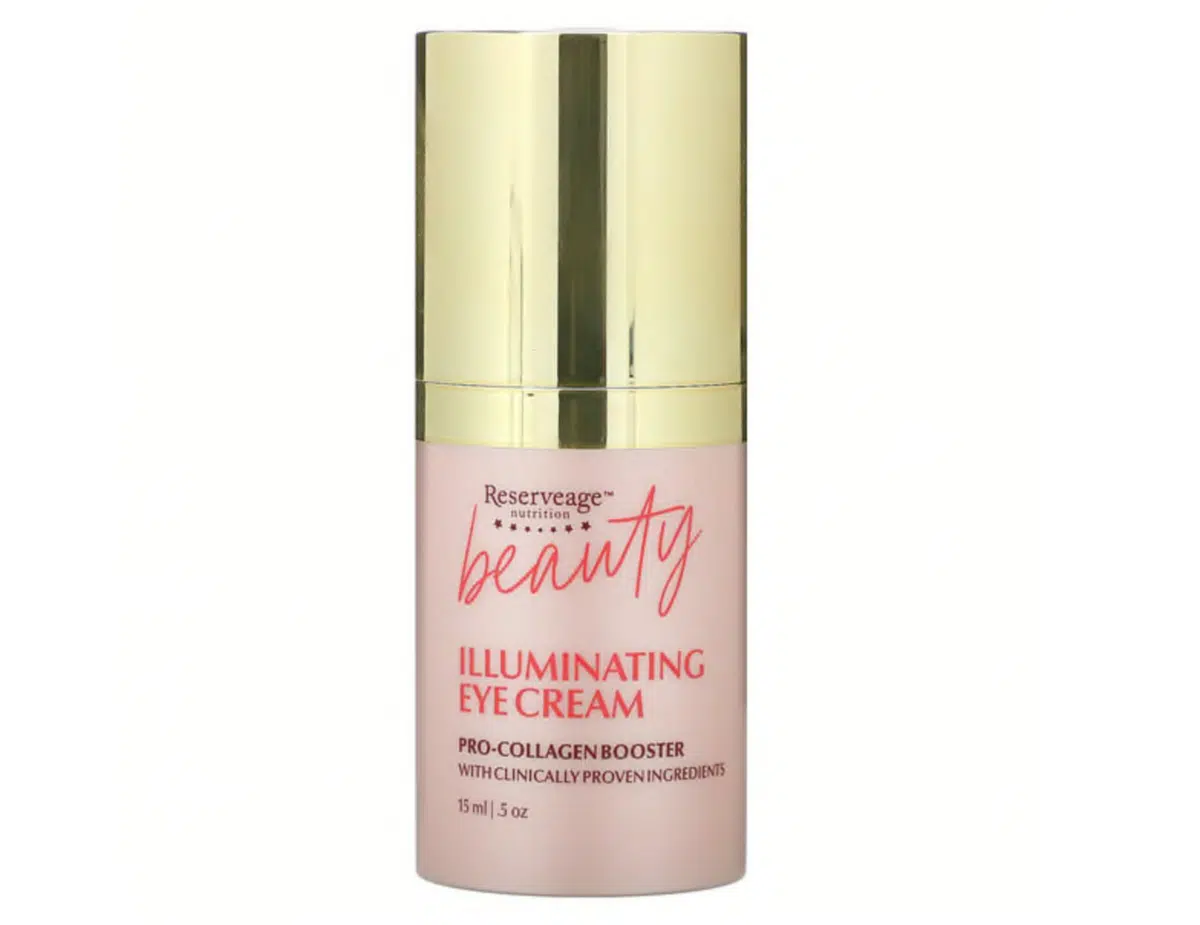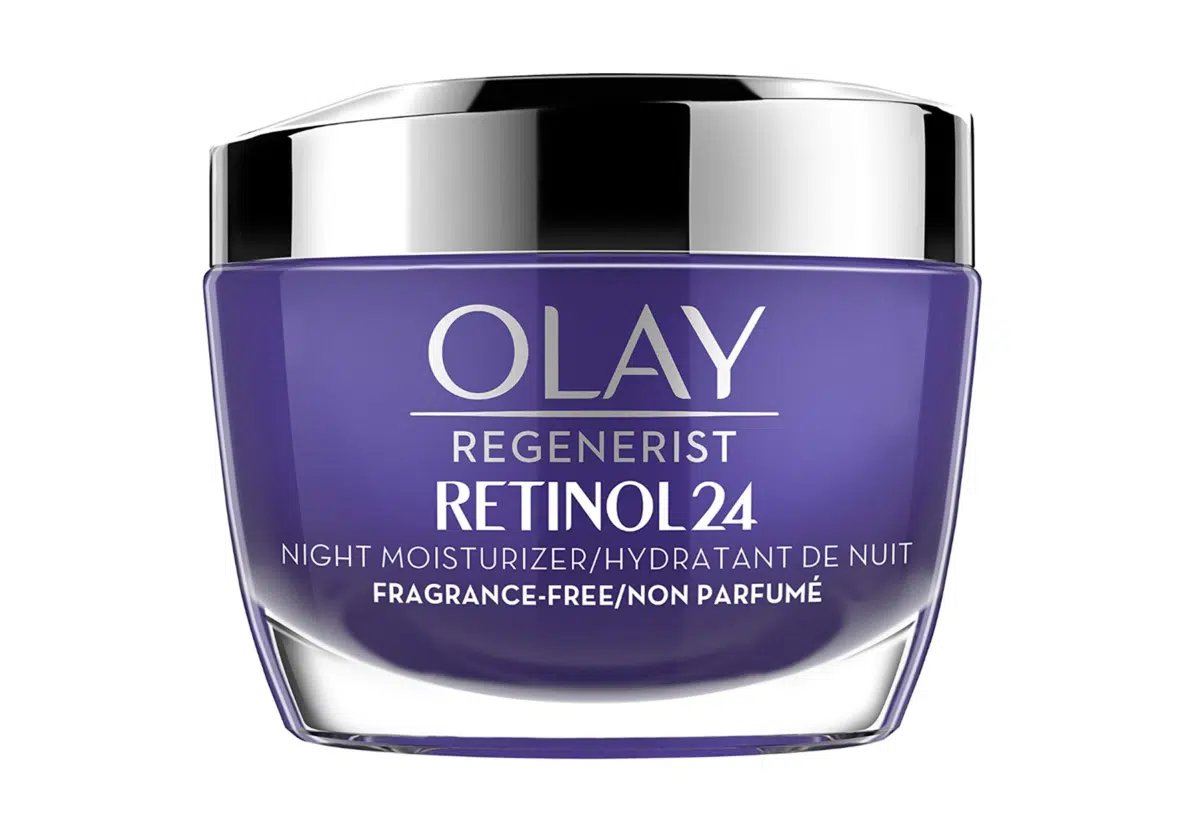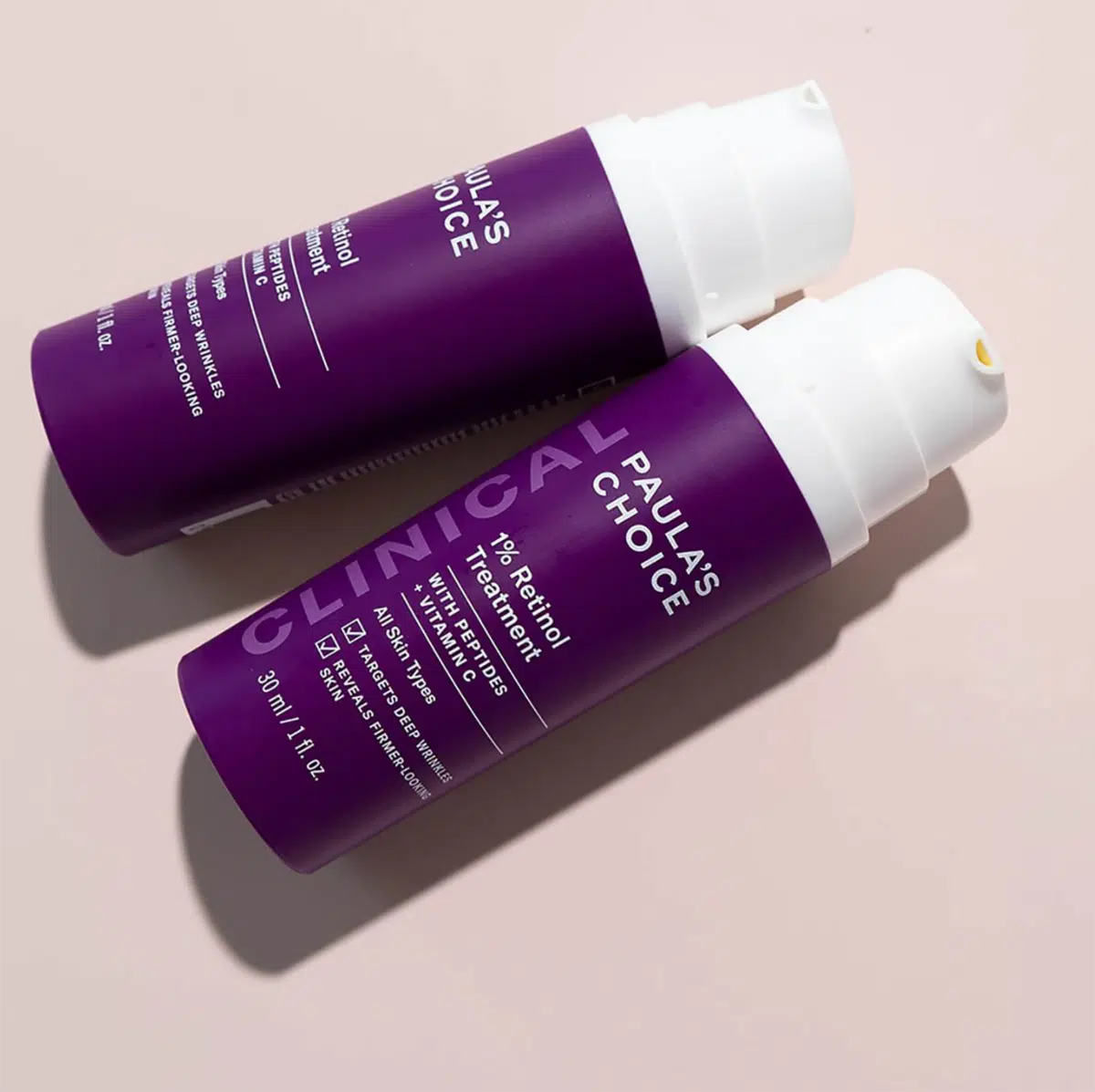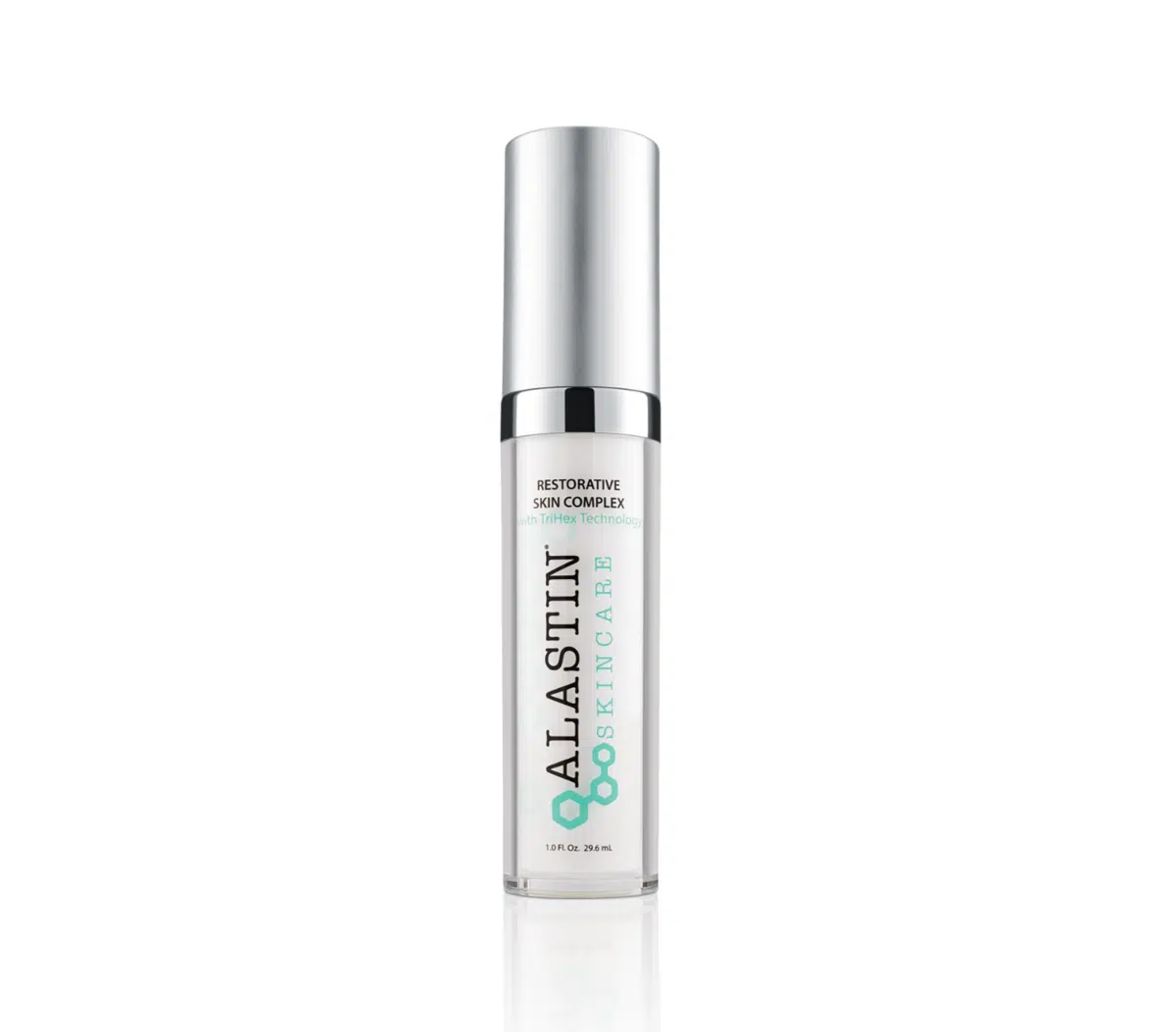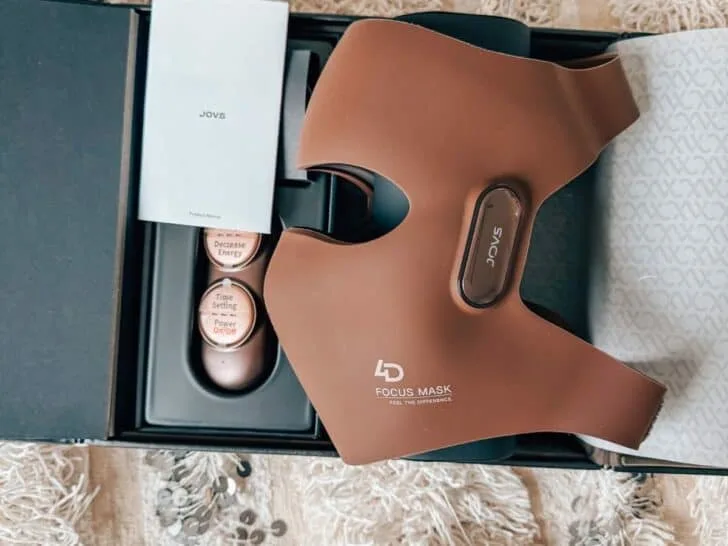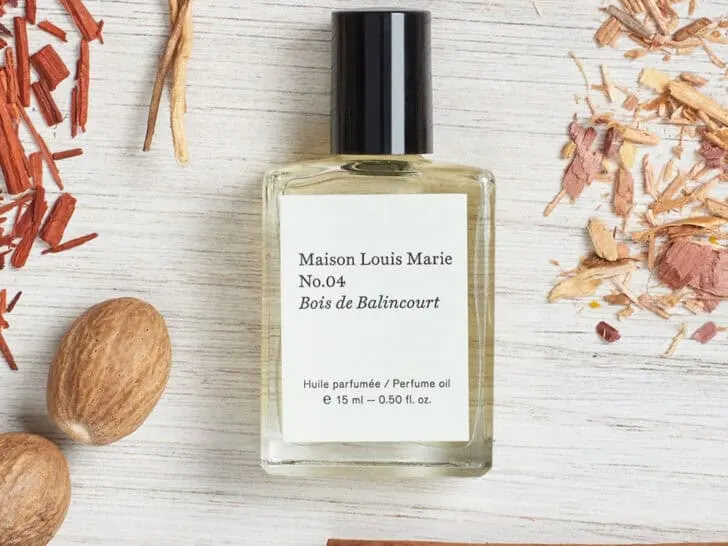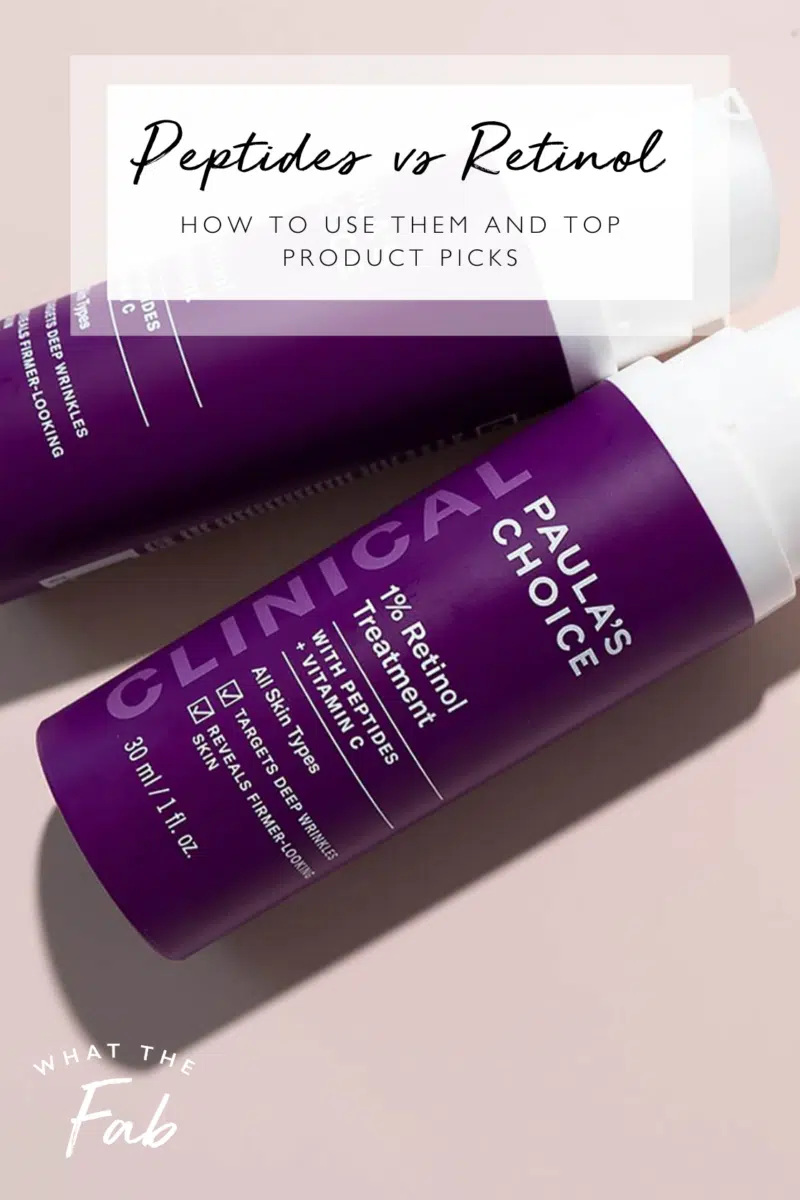
There’s a lot of debate in the skincare world on peptides vs. retinol, so I’m here to give you the scoop on everything you need to know and which products to try.
Peptides and retinol are two powerful skincare remedies that combat signs of aging, such as wrinkles, sagging skin, and dark spots.
Click the images below to shop for products featured in this peptides vs. retinol guide:
Since I started incorporating peptides and retinol into my skincare routine, my skin has improved significantly, and I’m confident you’ll see the same results too.
Let’s dive into why peptides and retinol are so important, how to use them safely and effectively, and which products I recommend!
Start shopping for peptide and retinol products by clicking the images below:
To make things easy for you, you can shop for these products by clicking directly on the images, the shopping buttons, and the text links.
These are my affiliate links, which means I receive a small commission when you purchase using my links (at no additional cost to you!), and I greatly appreciate you shopping with my links!
Peptides vs. Retinol: Full Skincare Guide
What Are Peptides?
Peptides are naturally occurring amino acids that form proteins found in our skin, like collagen.
Skincare products containing peptides are important for stimulating collagen production, improving skin barrier function, enhancing skin elasticity, and reducing skin inflammation.
Applying peptides to your skin tells your skin cells to perform certain tasks, like minimizing swelling and retaining moisture.
There are a few different kinds of peptides used in skincare, and each has its own benefits—Matrixyl and Argireline are two popular peptides with anti-aging properties.
Matrixyl helps stimulate collagen production and reduce the appearance of wrinkles, while Argireline relaxes facial muscles to prevent the formation of fine lines. Check out this argireline serum post if you want to learn more!
Niacinamide is another well-known peptide that’s used for its anti-inflammatory, hydrating, and complexion-evening capabilities, and copper peptides are commonly used in skincare serums and creams to repair sun-damaged and aging skin.
Peptides can benefit almost everyone, especially those wanting more collagen and hydration in their skin, which is often the case with mature skin.
The older we get, the more collagen production decreases, which is why we use peptides to combat dull, dry skin prone to wrinkles or photoaging.
What Is Retinol?
Retinol is a derivative of vitamin A that boosts skin cell turnover to brighten and even skin tone.
Vitamin A derivatives include (in order from mildest to most potent) retinyl palmitate, retinol, retinoic acid, retinaldehyde, and retinoid.
Retinol targets common skin concerns like hyperpigmentation, acne, fine lines, and wrinkles, and prescription-strength retinoids can also treat severe acne.
Consistent retinol use can improve skin texture, tone, and elasticity—it can take some time to see the effects, but your skin will be glowing once it adapts.
You can find retinol in a variety of products, from serums and creams to oils and masks, and many dermatologists suggest using it since there’s a lot of science to back up the skincare benefits.
Note that if you have a very sensitive skin type, eczema, or rosacea, retinol can cause irritation or dryness, and it should not be used during the day since it increases sensitivity to sunlight.
It’s best to apply sunscreen daily before sun exposure and use retinol products at night.
To avoid negative skin reactions, start with products with a small retinol concentration, around 0.01% – 0.03%.
Click the images below to start shopping for products featured in this peptides vs. retinol skincare guide:
Peptides vs. Retinols: Can I Use Them Together?
When it comes to peptides vs. retinol, both can be equally beneficial for your skin, depending on your skin type and needs.
Retinol and peptides are important for a good skincare routine since retinol boosts skin renewal to remove dead skin cells, while peptides increase collagen and moisture levels.
Both work in different ways, so you can use them in your nightly routine or apply peptides in the morning and retinol in the evening.
Peptides are the better choice if you want hydration, while retinol products are ideal if you want to prevent acne and combat signs of aging.
Dermatologists recommend using peptide and retinol products together since they’re complementary and provide maximum skincare benefits like improved skin tone and texture.
Slowly introduce retinol and peptides into your skincare routine by using one product at a time to build up a tolerance before adding the other.
If you use a skincare serum or cream that contains both ingredients, start with a small amount and gradually increase usage over time to see how your skin reacts.
Peptides vs. Retinol: Top Product Picks
1. Paula’s Choice Pro-Collagen Multi-Peptide Booster
The Paula’s Choice Pro-Collagen Multi-Peptide Booster is an excellent addition to any skincare routine.
This Multi-Peptide Booster combats signs of aging to give your skin a more youthful and glowing appearance.
The Pro-Collagen Booster has a smooth texture and is reasonably priced, making it easy to integrate into your skincare regimen.
2. The Ordinary “Buffet” + Copper Peptides 1% Serum
The Ordinary’s “Buffet” + Copper Peptides 1% Serum is designed to target wrinkles and fine lines.
Copper peptides found in this skincare serum help improve skin texture and firmness, while the “Buffet” peptide blend reduces inflammation.
This Copper Peptides 1% Serum is a great option for a product that can do it all and for an affordable price.
3. HydroPeptide Soothing Serum Redness Repair and Relief
If you struggle with rosacea, skin irritation, or redness, consider using the HydroPeptide Soothing Serum Redness Repair and Relief.
This Soothing Serum is packed with peptides and botanical stem cells that calm redness to give you a more even complexion.
The Redness Repair and Relief Serum also helps protect sensitive skin against harmful environmental toxins.
4. Reserveage Beauty Firming Face Cream
The Reserveage Beauty Firming Face Cream contains microencapsulated copper peptides which support collagen synthesis and boast antioxidant and anti-inflammatory properties.
This Firming Face Cream also includes a blend of nine other peptides, including Matrixyl and Dermaxyl, that have been clinically studied with proven effectiveness.
The Reserveage Beauty Face Cream has been shown to reduce dark circles and swollen eyes and improve overall skin firmness and elasticity.
Browse all my fav peptide and retinol products by clicking the images below:
5. Reserveage Beauty Illuminating Eye Cream
Another incredible Reserveage Beauty product is the Illuminating Eye Cream.
Microencapsulated copper peptides found in the Reserveage Beauty Eye Cream work to promote collagen production, resulting in a firmer and smoother under-eye area.
Consistently using this Illuminating Eye Cream will reduce crow’s feet and wrinkles and minimize dark circles, under-eye bags, and puffiness while also maintaining moisture levels.
6. Olay Regenerist Retinol 24 + Peptide Night Moisturizer
The Olay Regenerist Retinol 24 + Peptide Night Moisturizer is ideal for those looking to reduce the signs of aging.
This Night Moisturizer contains retinol, peptides, and niacinamide which help smooth wrinkles while boosting collagen production.
The Retinol 24 + Peptide Moisturizer is a great option for a highly-effective skincare product at an affordable price.
7. Paula’s Choice 1% Retinol Treatment
The Paula’s Choice 1% Retinol Treatment is not for the faint of heart!
This skincare treatment has an intense concentration of 1% retinol, so those with dry or sensitive skin should be careful when starting use.
As you slowly begin incorporating the Retinol Treatment into your regimen, your skin will love all the incredible benefits thanks to the potent blend of retinol, vitamin C, and peptides.
8. Alastin Restorative Skin Complex
The Alastin Restorative Skin Complex is a splurge, but it’s worth the price.
This Restorative Skin Complex features patented TriHex Technology that’s full of peptides.
The Skin Complex will help smooth fine lines and wrinkles and improve overall skin health for a more youthful and vibrant appearance.
Don’t forget to save this skincare guide to peptides vs. retinol—you’ll never have to wonder which skincare products to use for gorgeous, glowing skin!
Make sure to tag me on Insta (@wtfab) if you pick up any of these products so I can see the wonders they work on your skin.
If you loved this guide to peptides vs. retinol and want to try them for yourself, click the images below:
Glycolic Acid and Vitamin C: How to Use + Top Products
Can I Use Niacinamide with Hyaluronic Acid?
SkinCeuticals Glycolic 10 Renew Overnight Review
Best Face Washes for Hyperpigmentation
FAQs
Peptides are natural amino acids known for their collagen-boosting and hydrating effects.
Retinol is a vitamin A derivative that evens skin tone and texture and can treat acne.
I recommend the Alastin Restorative Skin Complex and Paula’s Choice Pro-Collagen Multi-Peptide Booster.

Elise Armitage is an entrepreneur and founder of What The Fab, a travel + lifestyle blog based in California. At the beginning of 2019, Elise left her corporate job at Google to chase her dreams: being an entrepreneur and helping women find fabulous in the everyday. Since then, she’s launched her SEO course Six-Figure SEO, where she teaches bloggers how to create a passive revenue stream from their website using SEO. Featured in publications like Forbes, Elle, HerMoney, and Real Simple, Elise is a firm believer that you can be of both substance and style.


